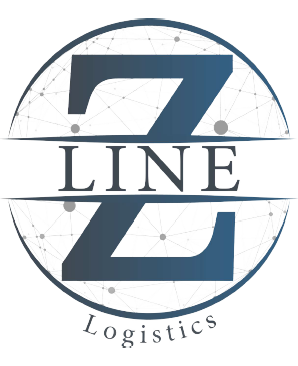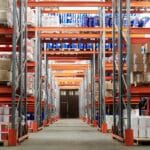How can Dubai ensure the safe and efficient transportation of temperature-sensitive pharmaceuticals in 2025? What is Pharmaceutical Cold Chain Management in Dubai?
With the growing demand for vaccines, biologics, and other temperature-sensitive medications, pharmaceutical cold chain management has become a crucial aspect of the healthcare and logistics industries.
Maintaining an unbroken cold chain is essential to preserving the efficacy and safety of these products, especially in a region like Dubai, where extreme temperatures and strict regulatory requirements create additional challenges.
As the pharmaceutical industry advances, companies must adopt state-of-the-art cold chain solutions, including temperature-controlled storage, real-time tracking systems, and advanced refrigeration technologies.
From ensuring regulatory compliance to minimizing product wastage, businesses must implement robust cold chain logistics to protect public health and maintain supply chain integrity.
In 2025, Dubai is set to witness significant advancements in pharmaceutical cold chain management, driven by innovation, digitalization, and a growing emphasis on sustainability.
Table of Contents
What is Pharmaceutical Cold Chain Management in Dubai?
Pharmaceutical Cold Chain Management is all about keeping temperature-sensitive medicines, like vaccines, insulin, and other biologics, at the right temperature throughout their entire journey from production to delivery.
These products need to be stored and transported in environments that maintain specific temperatures, usually between 2–8°C for refrigerated products or even colder for frozen ones.
The whole cold chain is vital because any break in the temperature control could ruin the product, making it unsafe or ineffective.

This involves a few key steps:
- Proper Storage: Medicines are kept in temperature-controlled warehouses, refrigerators, or freezers. The goal is to ensure that they’re stored at the right temperature, so they stay effective and safe to use.
- Transportation: When these products are shipped, they travel in refrigerated trucks, air freight containers, or other specially designed vehicles. The transport packaging—like insulated boxes and cold gel packs—helps keep the temperature stable during the journey.
- Temperature Monitoring: Throughout the entire process, temperature is carefully monitored with devices like data loggers or sensors. This data is tracked to make sure the product has stayed at the right temperature. It’s important not only for the quality of the product but also for meeting regulatory requirements.
- Final Storage: Once the product reaches its final destination—like a pharmacy or hospital—it’s stored under the proper conditions until it’s needed.
For more information: Exploring Global Sourcing Advantages and Disadvantages
7 Benefits of Pharmaceutical Cold Chain Management in Dubai
Pharmaceutical cold chain management is crucial, especially in a city like Dubai, where the healthcare sector is expanding rapidly, and temperatures can soar to extreme levels.
It plays a vital role in ensuring that sensitive drugs, vaccines, and biologics remain safe, effective, and potent all the way from production to delivery.
1. Protecting Product Quality and Efficacy
Certain pharmaceuticals, like vaccines and biologics, are sensitive to temperature changes. If these products are exposed to temperatures outside their required range, they can lose their effectiveness or even become harmful.
In a place like Dubai, with its intense heat, maintaining a controlled cold chain from manufacture to delivery ensures that these products remain safe and effective for patients.
2. Dubai’s Harsh Climate
Dubai’s climate presents a unique challenge when it comes to storing and transporting temperature-sensitive medicines.
With summer temperatures often exceeding 40°C (104°F), it’s critical that pharmaceuticals are kept at the right temperature during transit and storage.
A well-maintained cold chain infrastructure helps keep medications at the right temperature, no matter the external weather conditions.
3. Growing Healthcare Industry
Dubai has established itself as a healthcare hub in the region, with world-class medical facilities and an increasing demand for biopharmaceuticals.
This growing sector includes treatments like cancer medications and specialized vaccines that require precise temperature control.
A reliable cold chain ensures these medications maintain their integrity and continue to meet the high standards of the city’s healthcare system.
4. Meeting Global Standards
As a global trade hub, Dubai imports and exports pharmaceuticals from all over the world. Maintaining a good cold chain system is essential to ensure that medicines and vaccines arriving in the city are stored and handled according to international regulations.
The authorities in Dubai, like the Dubai Health Authority (DHA), enforce strict guidelines to guarantee that temperature-sensitive products are handled correctly, preventing any potential loss of quality.
5. Technological Advances in Cold Chain
With technologies such as real-time temperature monitoring systems, GPS tracking, and automated alerts, the industry is able to ensure that medications are stored at the right temperature throughout their journey.
This level of precision not only ensures safety but also boosts transparency, giving both regulators and consumers confidence that the products they receive are safe.
6. Efficiency and Cost Savings
Cold chain management isn’t just about keeping products at the right temperature. It’s also about optimizing the supply chain to reduce waste and minimize costs.
Pharmaceutical companies can ensure that their products reach the market without being compromised by investing in temperature-controlled storage facilities and efficient logistics.
7. Protecting Public Health
If vaccines or critical medications are improperly stored or transported, they could become ineffective, potentially putting the entire population at risk.
With Dubai’s role as a major international tourist destination, ensuring that vaccines and medications are safe and potent is especially important to protect both residents and visitors from preventable diseases.
Learn more: The Power of Global Sourcing in Supply Chain Management
Quality Standards in Dubai’s Cold Chain
The UAE follows strict regulations and international guidelines, like those from WHO and GDP, to ensure that temperature-sensitive products are stored and transported correctly.
UAE Pharmaceutical Regulations
The UAE Ministry of Health and Prevention (MOHAP), the Dubai Health Authority (DHA), and the Emirates Authority for Standardization and Metrology (ESMA) oversee the country’s pharmaceutical regulations.
These agencies make sure that medicines are stored and transported properly, especially those that require temperature control.
WHO Guidelines
The World Health Organization (WHO) sets international standards for managing cold chains.
In the UAE, the cold chain system must keep temperature-sensitive products, such as vaccines, within the correct temperature range (usually between 2°C and 8°C). WHO guidelines stress the importance of:
- Temperature-controlled transportation: Using refrigerated vehicles and storage facilities.
- Monitoring: Constantly checking temperatures to ensure they remain within the required range.
- Training: Ensuring that all staff handling these products understand how to maintain cold chain integrity.

Good Distribution Practice (GDP) Guidelines
Good Distribution Practice (GDP) guidelines help ensure the quality of pharmaceutical products during transportation and storage. In the UAE, cold chain management follows these guidelines, which include:
- Maintaining the right temperature: Monitoring the temperature during transport and storage to avoid product spoilage.
- Record keeping: Ensuring full traceability of products, from manufacturing to delivery.
- Security: Protecting medicines from theft or damage during transit.
Quality Control Measures in Dubai’s Cold Chain
Dubai has strict quality control measures to maintain cold chain integrity, including:
- Temperature Monitoring Systems: Real-time temperature tracking devices are used to monitor conditions during transport and storage.
- Qualified Facilities: Storage and transport facilities must meet specific standards, ensuring they can maintain the required temperature.
- Staff Training: Workers are trained on how to handle temperature-sensitive products and react to issues, like temperature changes.
- Regular Inspections: Authorities conduct audits to ensure compliance with cold chain standards.
- Backup Plans: There are contingency plans in place to address any temperature-related problems, like backup refrigeration.
For more information: Amazon Effect on Supply Chain – A Breakthrough in The World of Supply Chain
Summarizing our thoughts on Pharmaceutical Cold Chain Management in Dubai
As Dubai continues to position itself as a global hub for pharmaceuticals, efficient cold chain management will play a key role in ensuring the safety, quality, and availability of essential medications.
From advanced monitoring systems to eco-friendly refrigeration solutions, the future of pharmaceutical logistics in Dubai will be defined by technological advancements and stringent quality control measures.
Whether you are a pharmaceutical manufacturer, distributor, or healthcare provider, securing a reliable cold chain solution is vital for maintaining compliance and protecting product integrity.
To ensure your pharmaceutical cold chain operations in Dubai meet the highest industry standards, partner with Z Line Logistics today.
Visit Z Line Logistics to explore cutting-edge cold chain solutions designed to keep your temperature-sensitive products safe, secure, and effective.
Learn more: The Positive and Negative Impacts of the Amazon Effect on Freight in Dubai




